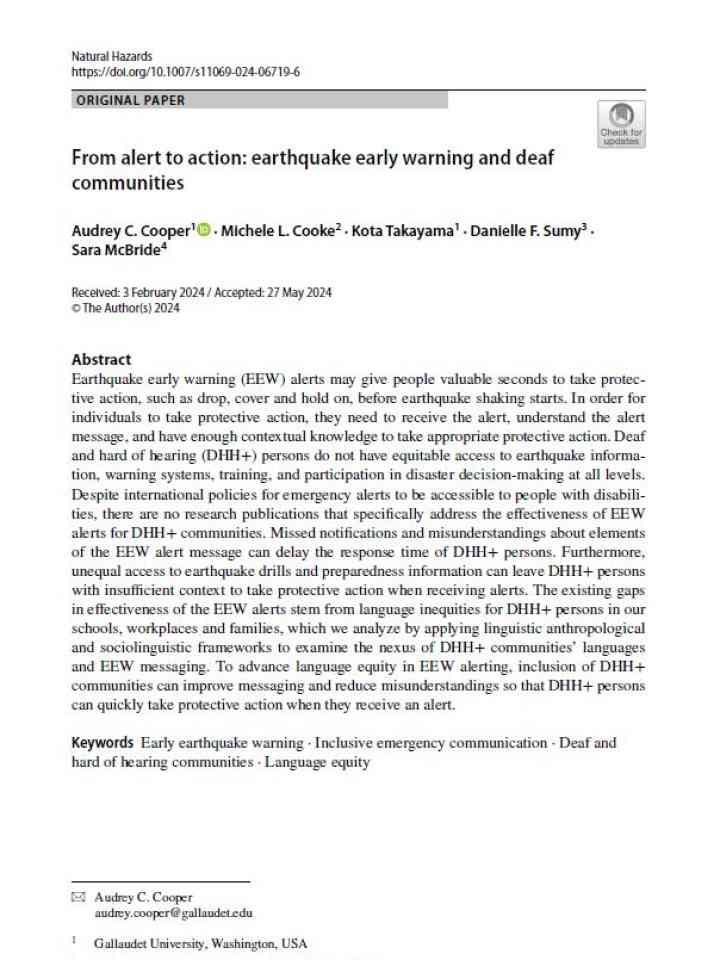From alert to action: earthquake early warning and deaf communities
This paper examines issues raised in the existing literature on Deaf and hard of hearing (DHH+) persons and disasters and applies insights to earthquake early warning (EEW) systems. Deaf and hard of hearing persons do not have equitable access to earthquake information, warning systems, training, and participation in disaster decision-making at all levels. Despite international policies for emergency alerts to be accessible to people with disabilities, there are no research publications that specifically address the effectiveness of EEW alerts for DHH+ communities. Missed notifications and misunderstandings about elements of the EEW alert message can delay the response time of DHH+ persons.
The existing gaps in effectiveness of the EEW alerts stem from language inequities for DHH+ persons in our schools, workplaces and families, which the authors analyze by applying linguistic anthropological and sociolinguistic frameworks to examine the nexus of DHH+ communities’ languages and EEW messaging. To advance language equity in EEW alerting, inclusion of DHH+ communities can improve messaging and reduce misunderstandings so that DHH+ persons can quickly take protective action when they receive an alert.
Explore further
